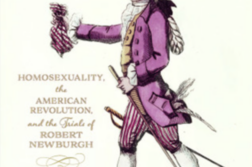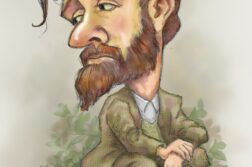THE MARTYRDOM of gay artists has become something of a cliché. Oscar Wilde, if not the first, is perhaps the most famous. But since then were Yukio Mishima, Reinaldo Arenas, and Pier Paolo Pasolini. To this list we could also add the name of the poet Jean Sénac, who’s widely believed to have been the victim of a 1973 Algerian government assassination. It is a name that’s not found even in the most authoritative studies of gay literary history. Even in France—where, if he’s remembered at all, it is as a major voice of the Algerian Revolution—his work as an advocate of gay liberation has gone generally unrecognized. However, in 2003 a film version of his life, Le Soleil Assassiné [The Assassinated Sun], was released in France that explored the relationship between his sexuality and his politics.
Yet in some ways this lack of recognition is not surprising, for Sénac was from the very beginning an outcast.





